Each year, NACUBO honors individual and institutional excellence through its awards program. The 2013 recipients were recognized in July during the annual meeting in Indianapolis at a ceremony supported by Sodexo.
Rogers and Quillian Receive Distinguished Business Officer Award
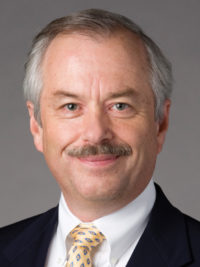
Frederick “Fred” A. Rogers, vice president, business and finance, and treasurer, Carleton College, Northfield, Minnesota, and Benjamin F. Quillian Jr., executive vice chancellor and chief financial officer, the California State University (CSU) system, Long Beach, received NACUBO’s most prestigious honor for outstanding contributions to business and financial management in higher education.
Rogers has been a leader and innovator among university business officers for 25 years. At Carleton College, he oversees all financial and business operations. His direct reports include the budget director, chief investment officer, comptroller, director of auxiliary services and special projects, manager of environmental health and safety compliance, director of facilities and capital planning, director of human resources, director of security services, and the sexual misconduct adviser/investigator and ombudsperson.
At Carleton, Rogers is also deeply passionate about the academic excellence of his alma mater. In addition to being an advocate for the institution, he is a staunch supporter of the finance profession and embraces his role as a mentor, nurturing up-and-coming colleagues who are building their skills in the field.
Rogers champions sustainability on campus and has been an active member of NACUBO’s Sustainability Advisory Panel since its inception in 2007. In this role, he helps create the strategic plan to lead member institutions toward a more sustainable future.
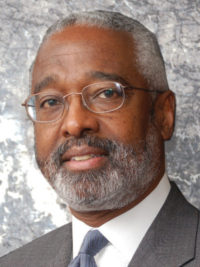
Quillian, who joined the CSU system in 2008, has been an instrument of change for the administrative and fiscal operations of the university system. He has provided strategic fiscal leadership to a large system that has undergone a prolonged period of declining state support.
As a CSU system officer, Quillian has a broad range of responsibilities, including the development of the annual support budget; allocation of state appropriations to 23 campuses; and oversight of the central administration’s business and capital planning, design, and construction management. He also oversees information technology services, risk management, and public safety, and provides direction for other CSU statewide initiatives.
During his tenure, Quillian has overseen a wide range of initiatives that will change the future of CSU, including implementation of the Common Financial System in 2011–12. The system eliminated redundant campus-based financial-systems modifications and improved baseline performance, while saving millions of dollars in systems installation, upgrade, and maintenance.
Quillian is also overseeing the consolidation of CSU’s 23 campuses into a common human resources system that will save millions of dollars. In addition, he is leading the next generation cyber infrastructure strategy and the procure-to-pay and strategic sourcing efforts, to develop a new business model for service delivery of basic administrative functions.
Beyond CSU, Quillian is treasurer of the board of trustees and chief of the California State University Risk Management Authority.
Turro Named Daniel D. Robinson Award Recipient
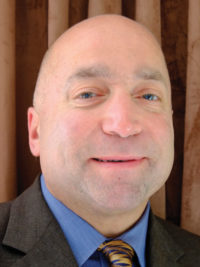
Karl E. Turro, controller, Northwestern University, Evanston, Illinois, earned NACUBO’s Daniel D. Robinson Accounting Award. Turro joined Northwestern more than 20 years ago, starting as accounting services supervisor and holding positions with increasing responsibilities until becoming controller in 2006.
Throughout his career, Turro has been dedicated to the advancement of college and university financial accounting and reporting. He has twice served on NACUBO’s Accounting Principles Council (APC), most recently as chair in 2012. He has been a member of APC’s Financial Reporting Inconsistencies workgroup, the Investment Unitization team, and most recently, the Blank Slate group.
Turro also has contributed to magazine articles on financial reporting issues and is currently writing an article for Business Officer addressing functional expenses. He also played an important role in reviewing NACUBO’s Guide to Unitizing Investment Pools. As a member of the Blank Slate team, he assisted with an industry advocacy effort to inform the FASB and the GASB.
Beyond his work with APC, Turro has contributed to educational programming in accounting and has participated in many NACUBO conferences, workshops, and webcasts. Additionally, he has been an active member of CACUBO, both in professional development and at the board level.
Sedlacek Selected for Adams Award
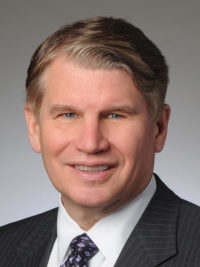
Verne O. Sedlacek, president and chief executive officer, Commonfund, Wilton, Connecticut, earned NACUBO’s Rodney H. Adams Endowment Management Award.
Sedlacek has been a top executive and thought leader in investment management for the nonprofit sector for almost 30 years. He is an ongoing contributor to professional development activities in endowment-investment management through executive leadership, teaching, and board service.
A graduate in economics from Princeton University, Sedlacek joined Harvard Management Co. in 1983, where he rose to the position of executive vice president and chief financial officer. While at HMC, he worked closely with company management to build the widely admired endowment model of diversified investing that has been successful for Harvard and other large endowments. He also pioneered many of the investment and operational risk management techniques used by most sophisticated endowments.
After leaving HMC in 1998, Sedlacek became president of alternative investment manager John Hemy & Co. He joined Commonfund as executive vice president in 2002 and was appointed president and chief executive officer in 2003.
During his tenure, Sedlacek has ensured that Commonfund continues to fulfill its dual mission as a manager of endowments as well as a source of education, professional development, and best practices for nonprofit institutions.
Sedlacek has been a guest lecturer at Harvard Business School and the Yale School of Management, and has participated as a faculty member at Commonfund Institute’s Endowment Institute program at Yale University. He appears frequently as an investment expert on television outlets and is quoted in major newspapers and magazines.
Klee Receives 2013 Tax Award
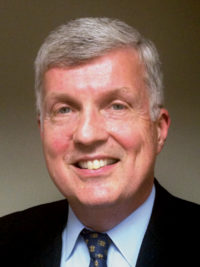
Richard F. Klee Jr., tax director, University of Notre Dame, Notre Dame, Indiana, has received the NACUBO 2013 Tax Award.
Klee, who has been working at the University of Notre Dame since 1998, is responsible for all aspects of federal and state tax compliance and administration, including employment and payroll taxes, preparation of Forms 990 and 990-T, 1098-T reporting, nonresident alien compliance, foreign bank account filings, retirement and benefit plan filings, charitable remainder trust returns, and reporting for the more than 200 of the university’s alumni clubs.
As an active member of the NACUBO Tax Council since 2005, Klee has represented both his university and the community in dialogue with the IRS. He has been instrumental in helping shape NACUBO positions on regulatory tax matters such as foreign bank account reporting requirements. Over the years, Klee has responded consistently to NACUBO’s requests for institutional feedback with the Notre Dame perspective and his own insights.
Klee is a distinguished speaker, covering topics that are broad-based and cutting-edge. He has spoken several times at the Tax Forum and at the Unrelated Business Income Tax workshops. He also has presented at state CPA societies (Illinois and Ohio), EACUBO, and Tax Institute for Colleges and Universities forums.
A strong proponent of spreading knowledge, Klee extends his volunteerism beyond industry organizations to give guidance to those in need of tax instruction. Each year he helps people prepare their tax returns through an IRS program at the university. He also regularly volunteers to give presentations on tax and personal financial planning to law students, high school students, and other groups in the Notre Dame community.
Castillo and Richards Named Rising Stars
Danilo A. Castillo, director, finance and administration, Florida International University College of Law, Miami, and Thomas F. Richards, treasurer, University of Missouri System, received NACUBO’s Rising Star Award that recognizes outstanding professionals at colleges and universities with high potential to succeed as executives and officers in higher education.
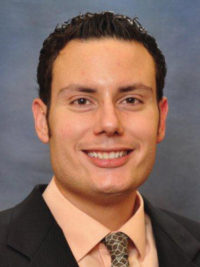
Castillo serves as the administrative principal for the Florida International University College of Law’s largest and most complex area: business, finance, and administration. He establishes an ethical business and administrative environment that supports the college’s faculty, administration, staff, and students at both the departmental and individual levels.
He also has the primary fiduciary responsibility and accountability for meeting standards of compliance with university, local, state, and federal policies, procedures, and laws.
Castillo’s input has helped the college to continue developing a more comprehensive and strategic plan for addressing the financial and programmatic impacts of new initiatives. He established comprehensive internal operating processes and controls, as required by state policies and regulations, in the areas of purchasing, payroll, travel, human resources, and property control. This effort resulted in streamlined operations, increased efficiency, and maximized accountability to ensure funding sources are used properly and efficiently in all areas.
He also undertook a project that analyzed and monitored existing auxiliaries to maximize efficiency and ensure that productivity was aligned to both short- and long-term financial goals. This effort resulted in an increase in the net profit by 87 percent ($180,000) for the Legal Studies Institute for Paralegals.
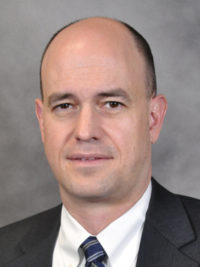
Richards manages the University of Missouri System’s $3 billion retirement fund, $1.1 billion endowment fund, and $1.7 billion general fund investment portfolios, as well as $1.4 billion in debt, banking relationships, and cash. He also is responsible for advising the system’s four campuses on large financial transactions that involve any form of debt or equity investment.
Having previously served as chief financial officer of Veterans United, Richards became treasurer of the University of Missouri System in January 2011, where he has been instrumental in modeling and leading the board adoption of a change in the annual distribution of the endowment payout. This revision will increase the long-term value of the endowment, providing greater budget predictability and streamlining the administrative process.
Richards also developed and secured board adoption of new investment policies for the university’s retirement and endowment trust fund, as well as new debt policies. Additionally, he designed and implemented a systemwide central bank for the four campuses and hospital system that will encompass external debt and internal lending, consolidate cash-management activity, and generate financial resources for strategic investment.
He helped design the investment platform for the defined contribution component of a new hybrid retirement plan. He changed the management of the university’s working capital pool by implementing sophisticated cash flow modeling and a new asset allocation policy using risk parity, resulting in significant improvements to investment return.
Reedy Selected for the Professional Development Award
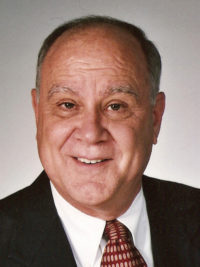
Dennis W. Reedy, managing director, treasury operations, Indiana University (IU), received NACUBO’s Professional Development Award for outstanding individual contributions to the association’s professional development activities and its publication programs.
Reedy, who has served as a financial leader at IU for more than 30 years, is responsible for treasury management of the eight-campus, 99,000-student university system. He oversees cash and investment management operations, banking relations, credit card processing, and e-business support.
Among his many accomplishments is his role in 2000 as cofounding board member and coexecutive director of the Treasury Institute for Higher Education, which provides educational resources for higher education and best practices in the industry.
Reedy, who retired this summer, also served for more than 10 years as a faculty member of the NACUBO Cash Management/Investment workshop. These workshops educated hundreds of business officers new to their role in higher education. In addition, he served as the coauthor for the treasury management chapter of NACUBO’s College and University Business Administration (Sixth Edition).
He is a Certified Treasury Professional and serves on the board of directors of the Association for Financial Professionals. He also is a past president and current director of AFP of Indiana. Reedy also is a longtime representative of the Big Ten treasurers’ group, a peer group that determines and promotes best practices in these large universities. He has been a mentor and adviser to senior managers at IU and numerous other colleges and universities across the country.
Four Institutions Receive Innovation Award Honors
- Baylor University, Waco, Texas, for its Baylor Energy Awareness Program, which has saved the university more than $1.3 million since its inception in 2010, and has motivated nearly 1,000 students to participate in the residence hall competition.
In 2004, Baylor built a substation and its facility services department integrated energy management with the operations program. The next step was to engage faculty, staff, and students through an outreach, training, and awareness initiative to reduce energy consumption through improved operational efficiencies, while engaging the campus population in responsible choices, ultimately fostering behavioral change.
At the core of the program is game-based learning supplemented by a number of communication and marketing vehicles. One of the most influential techniques has been the Baylor Energy Madness Residence Hall Competition. Students compete as teams, earning points for energy reduction in their residence halls while receiving bonus points by participating in other energy-related activities.
Social media also has played a big part in the program. Students can monitor energy usage in their residence hall through EnergyZone, a Web-based community competition platform. Links to Facebook, Twitter, and YouTube engage students even further.
The university provides program materials to new employees, and new and prospective students. Additionally, outreach efforts have helped faculty and staff accept and adhere to campus temperature guidelines.
- Elgin Community College, Elgin, Illinois, for its financial literacy program that consolidates key information to help families better understand the process of paying for college.
In 2012, in collaboration with the college’s award-winning Alliance for College Readiness program, ECC’s student financial services department designed a series of events to help families prepare for college. Staff mailed thousands of “save the date” postcards and posted details on the college’s Web site. They also mailed 5×7-inch magnets that listed important college-preparation steps to thousands of families with high school seniors.
The first event was ECC’s College Night, which highlighted the institution’s academic programs. The financial aid and student accounts offices provided general FAFSA, scholarship, payment plan, and tuition-cost information.
Next was “College and Career 101 for Parents of High School Students,” hosted by area high school counselors and ECC staff. Topics ranged from placement testing and career choices, to time-management needs and financial assistance, with a general overview of the federal student financial assistance program, state grants, and scholarships.
Two weeks later, ECC staff presented the College Smart Fair, which provided additional information about completing the FAFSA, finding scholarships, and writing a scholarship essay. Parents also could speak directly with financial aid experts from the student accounts and financial aid offices. ECC had been presenting the fair since 2010, but this was the first time it was aligned with other events and programs across the campus.
It cost ECC about $5,000 for marketing materials, informational packets, and refreshments, which was leveraged across multiple departments. This collaborative effort also markedly increased the staff that could be allocated to the program.
- The State University of New York (SUNY) Canton and SUNY Potsdam for develop-ing a unique administrative alliance that has fostered shared services across the two campuses.
Over the past several years, the State University of New York and its 64 campuses have faced severe budget cuts of almost $1.4 billion. SUNY Canton and SUNY Potsdam, two independent institutions with different missions, joined together to develop an administrative alliance that has fostered shared services across the two campuses. These shared services have resulted in solutions that meet the business and operational needs of the campuses and redirect funding to academic and student services.
In July 2011, SUNY Canton and SUNY Potsdam were faced with the impending retirement of their respective vice presidents for business affairs and administration. The two institutions jointly hired one vice president for business affairs/chief financial officer, creating a wholly distinctive position within SUNY.
A year later, SUNY Canton and SUNY Potsdam hired a shared vice president for business affairs and administration. The new vice president analyzed the two campuses’ operations and developed plans to further align the back-of-the-house operations while improving services. Prioritization was given to addressing areas at greatest risk on one or both campuses from an operational and financial perspective, as well as health and safety.
The first areas were human resources and payroll, where a seamless transition to a shared HR/payroll function was achieved in eight months. Next to become shared functions were environmental health and safety, university police, and compliance.
Other alliances have included purchasing, travel and expense management, accounts payable, budget office, sustainability, centralized printing, IT, upholstery shop, fleet management, interlibrary loan, graduate resident assistant, and military veterans coordinator.
In the nine months since the start of the administrative alliance, SUNY Canton and SUNY Potsdam have realized savings in excess of $900,000. As the administrators of the two campuses continue to build on these successful alliances, they expect to redirect a minimum of 10 percent of their administrative budgets to instruction and student services.
- The University of North Carolina (UNC) at Chapel Hill for its Safe View 360 program that improves the safety of emergency responders by allowing them to understand the full impact of an accident and see potential hazards before arriving on scene at the institution.
UNC is one of the world’s leading research institutions, with more than 500 principal investigators and 4,500 laboratory researchers. The environment, health and safety (EHS) department, which is responsible for laboratory safety, has long recognized the need for emergency responders to be familiar with the floor plans of the laboratories. However, tours of the buildings were impractical due to restricted access and the round-the-clock usage of the labs by researchers.
The department took its safety process to another level and developed the Safe View 360 program, dramatically improving the safety of first responders in the event of a lab accident or fire. Safe View 360 provides photographs of laboratory interiors, from floors to ceilings, using a camera and software by an outside vendor.
This 360-degree view of lab interiors enables responders to observe the inside of a room before they enter. They can see where a flammable cabinet, toxic gas cylinder, or other equipment is located. By being able to see behind doors and around corners, responders can more safely navigate through smoke and other hazards.
This imagery is available in the EHS Emergency Operations Center to aid in emergency management and planning. Geo-referenced floor plans convey the spatial relationships between rooms and corridors, and show methods of entrance and egress. From outside, various oblique and orthogonal aerial images relay data about the physical location of the building and its proximity to other areas of interest, such as hospitals or roadways.
EHS is looking into other potential applications of this technology, including collaboration with public safety officials as well as maintenance and facility-services planning.


